
Breast tenderness
Some women notice breast tenderness when they ovulate and right around the time their period is due. Breast tenderness is also an early sign of pregnancy. When you are pregnant, your body produces higher levels of estrogen and progesterone. These hormones are the same hormones that cause breast tenderness when you’re not pregnant, but in early pregnancy hormonal changes are stronger than what you see during your menstrual cycle. The hormonal changes in early pregnancy causes the blood flow to your breasts to increase and can make the breast tissue feel more sensitive and swollen.

Fatigue
Are you falling asleep in the middle of your favorite prime time show or suddenly feeling the need to take an afternoon nap? Fatigue is one of the first pregnancy symptoms. Increased progesterone levels can make you feel exhausted. Some women will notice fatigue as early as a week after ovulation. After you ovulate your progesterone levels rise, whether you are pregnant or not, but if you aren’t pregnant your progesterone levels will start to drop back off and signal the start of your next period. If you start feeling tired after ovulation and this exhaustion gets worse instead of better, it could be an early sign of pregnancy.

Nausea
Nausea can be an early pregnancy symptom. Some women will start feeling queasy days before they even have a missed period. Blame the nausea on hormones again! For most women morning sickness doesn’t set in until around six weeks of pregnancy but some women will start feeling queasy really early on.
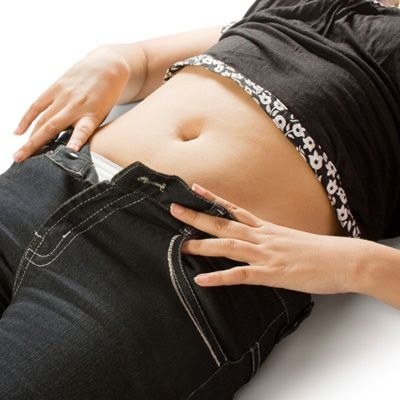
Bloating
Bloating is another early sign of pregnancy. It may be hard to tell the difference between premenstrual bloating and pregnancy bloating as PMS and pregnancy symptoms can feel remarkably similar. However, pregnancy symptoms are often more exaggerated than typical PMS symptoms. Bloating, like other symptoms in early pregnancy, is caused by hormonal changes. As your progesterone and estrogen levels rise, the lining of your uterus thickens, making you feel more bloated. Hormonal changes also cause your digestive system to slow down and this can cause bloating as well.

Constipation or diarrhea
Hormonal changes in early pregnancy can cause your digestive system to slow down. This can cause constipation. Prenatal vitamins can add to this problem as the iron contained in them is also constipating. Adding more fiber to your diet and drinking extra fluids will help with this. Some women, however, will notice the opposite problem, diarrhea – although, this is an uncommon early pregnancy symptom. Hormones sometimes affect women differently though. While most women will have issues with constipation during early pregnancy, some will have diarrhea instead.

Headaches
Not every woman has problems with headaches during pregnancy, but for some this is the very first tell-tale sign of pregnancy. Headaches during early pregnancy are thought to be caused by hormonal changes as well as changes in a woman’s blood volume. The sudden increase in estrogen and progesterone may be what triggers headaches for some women. Migraine headaches, which are a vascular type of headache, may be a result of the increase in blood flow a woman experiences during pregnancy.

Backache
Implantation cramping, bloating and constipation can all cause back aches during early pregnancy. For some women backache is also a premenstrual symptom. As your uterus stretches and grows though, this can cause cramping, aches and pains. Sleeping poorly can also contribute to back pain during early pregnancy.

Spotting
While some women think that implantation spotting is a common early pregnancy symptom, it doesn’t occur in most pregnancies. About 20-25 percent of women will have some type of spotting during pregnancy. Implantation spotting is one of the reasons for spotting during early pregnancy and it can be an early sign of pregnancy. Typically, implantation bleeding is light and usually brown or pink spotting. A woman may notice this type of spotting a week to a few days before her period is due.
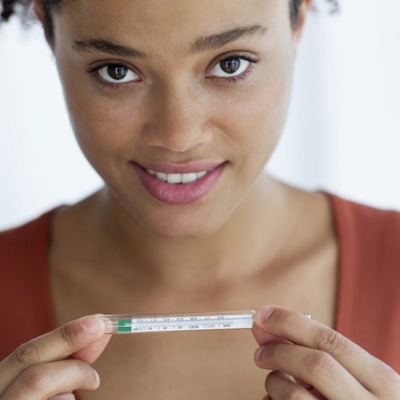
Increased basal body temperature
In order to know if your basal body temperature has increased, you would need to be keeping track of it prior to ovulation. A woman who keeps a bbt chart may be able to tell she is pregnant just by looking at the temperatures on her chart. After ovulation, progesterone causes a woman’s temperatures to rise. Sometimes a woman will see a second rise in temperature around 7 days past ovulation. When this happens, it is called a triphasic chart. A triphasic chart can be one of the earliest signs of pregnancy.

Darker areolas
When you look in the mirror you might notice that your areolas are no longer pink but brown or if they were brown to begin with they might turn a darker shade of brown. Not only do they look darker, but they may have grown in diameter as well. It makes sense that your breasts would change to prepare for breastfeeding, but you might not expect to see noticeable change so early in pregnancy. For some though, darker areolas are noticeable shortly after conception. Breast changes can occur a week to two weeks after conception.

Vaginal discharge
A woman’s vaginal discharge can give her a clue as to where she is at in her menstrual cycle and whether or not she has conceived. Typically, around ovulation a woman will have an increase in cervical mucus. After ovulation cervical mucus dries up and generally stays dry through the remainder of her cycle. When a woman is pregnant, her estrogen levels increase which may cause her to secrete more cervical fluid. This increase in cervical fluid can be an early sign of pregnancy. Some women describe having a creamy, lotion like, or yellowish colored vaginal discharge in early pregnancy. However, normal estrogen changes, unrelated to pregnancy, can also cause vaginal discharge so this isn’t the best indicator of pregnancy.

Mood swings
Women are known to be moodier right before their period starts. We’ve all heard of PMS mood swings. Pregnancy mood swings are similar but often presents as water works rather than rages; although anyone that’s ever angered a pregnant woman might disagree. If you are feeling unusually emotional this could be an early sign of pregnancy.

Frequent trips to the bathroom
Frequent urination is a big complaint amongst pregnant women. Some women don’t have problems with this until later in pregnancy, but for many, frequent urination becomes a problem right away. Your blood volume increases dramatically during pregnancy. As your kidneys work hard to process the extra fluids, you may end up using the bathroom more often. In addition, your uterus is growing and expanding which may put extra pressure on your bladder, causing you to have to urinate more frequently.
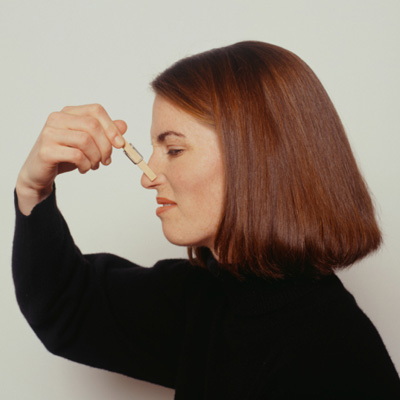
Heightened sense of smell
Peeu that stinks! Are you noticing the odor of the trash can from two rooms away or does the smell of chicken frying up in the pan make you feel ill? This is one thing women may notice before they even realize they're pregnant. Pregnant women’s noses don’t get any bigger and there aren’t actually any changes that we know about that occur within the olfactory system, but none the less, it’s a symptom that lots of newly pregnant moms experience. We’re not entirely sure what causes this symptom but it may have something to do with the increase in estrogen levels.

Food aversions
When you think of pregnant women and food you normally think of cravings. Cravings are a well known pregnancy symptom, but not necessarily one of the early ones. Cravings before your period start could easily be explained away as a PMS symptom. Women often crave chocolate or sweets before they start their period. Aversions, on the other hand, are not generally thought of as a PMS symptom. If certain foods all of a sudden don’t taste quite right or your morning cup of coffee is no longer appealing, this could be an early pregnancy symptom.
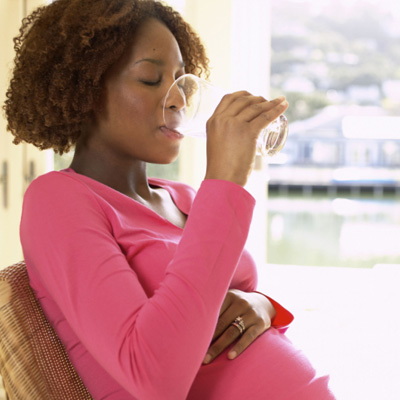
Increased thirst
Chug-a-lug. Are you feeling thirsty? Feeling thirsty isn’t one of the symptoms you hear a lot about but it’s something that lots of women deal with in early pregnancy. They may just not realize that it’s an early symptom. In early pregnancy your blood volume increases. This can cause frequent urination but it can also make you feel thirsty.
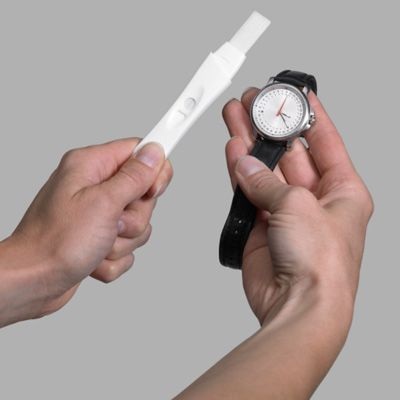
What to do?
If you’re having what could be early pregnancy symptoms but your period isn’t late yet, you may be wondering when you should take a pregnancy test. Early symptoms, no matter how many and how strong they are, don’t always mean that you will get a positive result – even if you are pregnant. Most home tests on the market these days are very sensitive, but the closer you are to having a late period, the more accurate the test will be. It’s best to wait until your period is late before testing, but if you are anxious to take a test you may be able to get a positive as early as 4 to 5 days before a missed period, depending on what test you take.